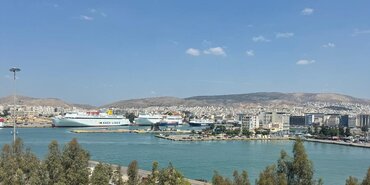US Position
For a more comprehensive summary of US Iranian Sanctions, please see https://www.treasury.gov/resource-center/sanctions/Programs/Documents/jcpoa_faqs.pdf
The below are simply some edited highlights.
It should be remembered that not all sanctions against Iran have been lifted by the US. The US has lifted “nuclear related secondary sanctions”. Secondary sanctions generally are directed toward non-US persons and entities for specified conduct involving Iran that occurs entirely outside of US jurisdiction. Primary sanctions (ie those relating to US persons and entities) remain in place as do other sanctions in relation to Iran’s sponsorship of terrorism and human rights abuses.
The following US Secondary Sanctions have been lifted:
- Financial and banking-related sanctions (see sections 4.1 of Annex II and 17.1 of Annex V of the JCPOA and section C of these FAQs);
- Sanctions on the provision of underwriting services, insurance, or re-insurance in connection with activities that are consistent with the JCPOA (see sections 4.2 of Annex II and 17.1 of Annex V of the JCPOA and section D of these FAQs);
- Sanctions on Iran’s energy and petrochemical sectors (see sections 4.3 of Annex II and 17.1 of Annex V of the JCPOA and section B of these FAQs);
- Sanctions on transactions with Iran’s shipping and shipbuilding sectors and port operators (see sections 4.4 of Annex II and 17.1 of Annex V of the JCPOA and section E of these FAQs);
- Sanctions on Iran’s trade in gold and other precious metals (see sections 4.5 of Annex II and 17.1 of Annex V of the JCPOA and section F of these FAQs);
- Sanctions on trade with Iran in graphite, raw or semi-finished metals such as aluminum and steel, coal, and software for integrating industrial processes, in connection with activities that are consistent with the JCPOA (see sections 4.6 of Annex II and 17.2 of Annex V of the JCPOA and section G of these FAQs);
- Sanctions on the sale, supply, or transfer of goods and services used in connection with Iran’s automotive sector (see sections 4.7 of Annex II and 17.1 of Annex V of the JCPOA and section H of these FAQs); and
- Sanctions on associated services for each of the categories above (see sections 4.1-4.7 of Annex II and 17.1-17.2 of Annex V of the JCPOA) (see FAQ A.7 for a discussion of “associated services”).
Additionally, over 400 individuals and entities have been removed from OFAC’s list of Specially Designated Nationals (SDN list).
Secondary sanctions do remain in place for non-US persons conducting transactions with any of the 200 Iranian or Iran related individuals and entities remaining on the SDN list, not withstanding the lifting of secondary sanctions on categories and sectors set out above.
Further, the US has implemented a licensing programme for three categories of activity that would otherwise remained prohibited under the Iranian Transaction and Sanctions Regulations, provided the transactions do not involve individuals or entities on the SDN list or are otherwise inconsistent with US law. These are:
- A case by case licensing of individuals and entities seeking to export, re-export , sell, lease or transfer to Iran commercial passenger aircraft, and related parts and services, for exclusively commercial passenger aviation;
- A general licence authorising US owned or controlled foreign entities to engage in certain activities involving Iran; and
- A general licence authorising the importation into the US of Iranian origin carpets and foodstuffs.
The following US Sanctions remain in place:
- Primary sanctions. The US domestic trade embargo on Iran remains in place. After Implementation Day, with limited exceptions, US Persons including US Companies continue to be broadly prohibited from engaging in transactions or dealings with Iran or its government. and U.S. persons continue to be broadly prohibited from engaging in transactions or dealings with the Government of Iran and Iranian financial institutions, with the exception of transactions that are exempt from regulation or authorized by OFAC. Unless an exemption or express OFAC authorization applies, U.S. persons continue to have an obligation to block the property and interests in property of all individuals and entities that meet the definition of the Government of Iran or an Iranian financial institution, regardless of whether or not the individual or entity has been identified by OFAC on the E.O. 13599 List (see FAQ I.2). In addition, non-U.S. persons continue to be prohibited from knowingly engaging in conduct that seeks to evade U.S. restrictions on transactions or dealings with Iran or that causes the export of goods or services from the United States to Iran.
- Designation authorities. In addition, after Implementation Day, the United States retains a number of authorities to counter Iran’s other activities, including the following authorities which are also listed in section VII.B of the Guidance Document:
- Support for terrorism: Executive Order 13224 (blocking property and prohibiting transactions with persons who commit, threaten to commit, or support terrorism);
- Iran’s human rights abuses:
- Executive Orders 13553 and 13628 (implementing sections 105, 105A, and 105B of CISADA (related to persons who are responsible for or complicit in human rights abuses committed against the citizens of Iran; transfers of goods or technologies to Iran that are likely to be used to commit serious human rights abuses against the people of Iran; and persons who engage in censorship or similar activities with respect to Iran)); and
- Executive Order 13606 (relating to the provision of information technology used to further serious human rights abuses);
- Proliferation of WMD and their means of delivery, including ballistic missiles: Executive Orders 12938 and 13382;
- Support for persons involved in human rights abuses in Syria or for the Government of Syria: Executive Orders 13572 and 13582; and
- Support for persons threatening the peace, security, or stability of Yemen: Executive Order 13611.
3. Secondary Sanctions targeting dealings by non-U.S. persons with Iran-related persons remaining on the SDN List after Implementation Day or involving trade in certain materials involving Iran. After Implementation Day, secondary sanctions continue to attach to significant transactions with: (1) Iranian persons that are on the SDN List; (2) the Islamic Revolutionary Guard Corps (IRGC) and its designated agents or affiliates; and (3) any other person on the SDN List designated under Executive Order 13224 or Executive Order 13382 in connection with Iran’s proliferation of weapons of mass destruction (WMD) or their means of delivery or Iran’s support for international terrorism (see FAQ A.6). In addition, sanctions targeting certain activities related to trade in materials described in section 1245(d) of the Iran Freedom and Counter-Proliferation Action of 2012 (IFCA) that are outside the scope of the JCPOA and related waivers remain in place.
While OFAC maintains the specially designated nationals (“SDN”) list, they also maintain a number of other non-SDN lists. Specifically, OFAC maintains a list of “Foreign Sanctions Evaders,” “Sectoral Sanctions Identifications,” “Palestinian Legislative Council,” “The List of Foreign Financial Institutions Subject to Part 561,” “Non-SDN Iranian Sanctions Act List,” and “List of Persons Identified as Blocked Solely Pursuant to Executive Order 13599.” OFAC maintains these list as one consolidated sanctions list. The SDN List and the consolidated sanctions list can be searched at the following website https://sanctionssearch.ofac.treas.gov/.
When you search the list, if an entity is on the Non-SDN Iranian Sanctions Act List, the letters “NS-ISA” will be next to the name. Members should refrain from engaging in business with any entities/individuals located on the Non-SDN Iranian Sanctions Act list.
- Date
- 20/01/2016





